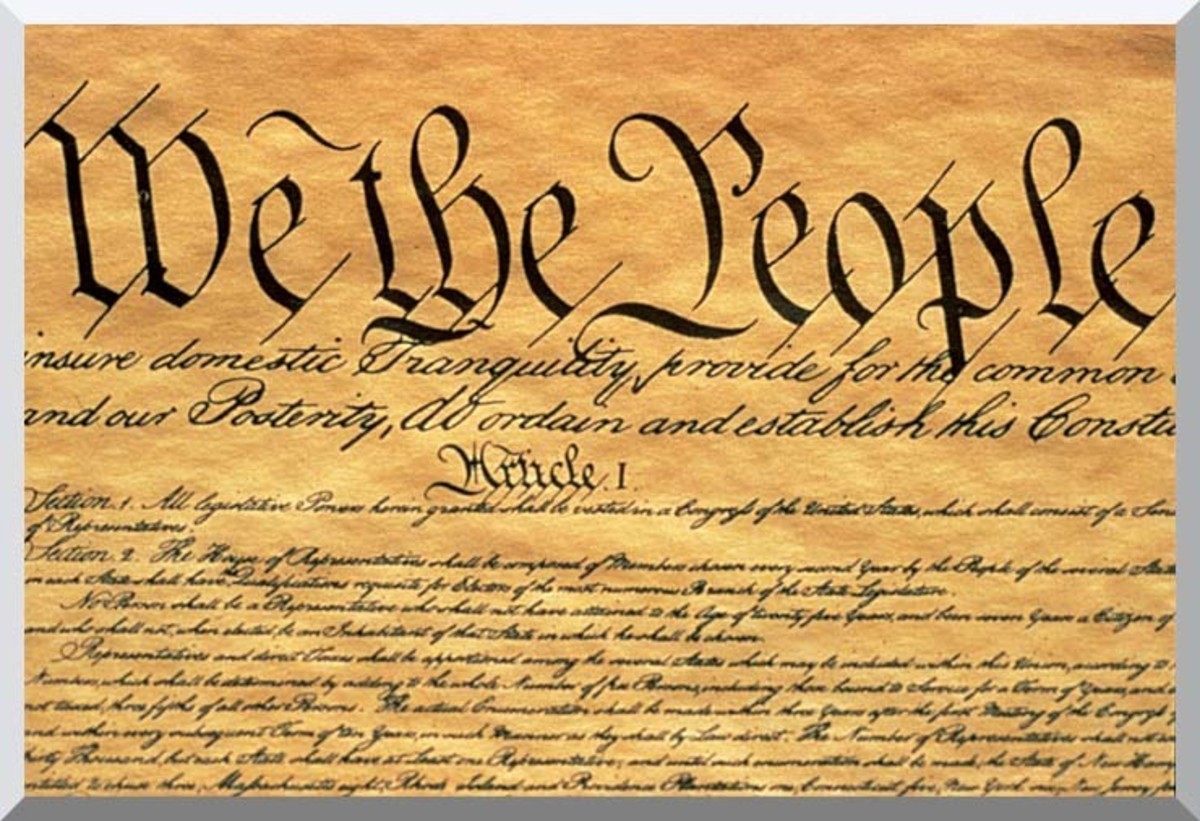Why the US Should Submit to the Jurisdiction of the ICC

On July 17, 1998, the international community established the Rome Statute, a treaty that created a permanent international tribunal, the International Criminal Court (ICC). The ICC is seated in The Hague, Netherlands and is independent of the United Nations, though the UN Security Council has the ability to refer cases to the court. The ICC can only prosecute in cases of genocide, war crimes and crimes against humanity; the court will also prosecute crimes of aggression starting in 2017. (ICC-CPI) The court is designed to complement national courts, and would try cases that individual countries were unable or unwilling, not impeding on their jurisdiction. (Gale Encyclopedia of American Law) As of October 2012, 121 of 195 nations are party to the statute.
The United States was one of 139 countries that participated in the signing of the Rome Statute, which took place on December 31, 2000. As a signing nation and a party to the forming of the provisions that make up the Rome Statutes, the United State should submit to the jurisdiction of the International Criminal Courts.
The United States has also been party to a number of international laws and treaties it has signed and agreed to abide by. Probably the most well know is the Geneva Conventions. Though it has refused to comply with Protocols I & II, the US adheres to the four main conventions; this includes the 3rd Convention which pertains to the treatment of prisoners of war, and the 4th Convention that details the protection of civilians during wartime. (ICRC.org) In 1948, the United States, through First Lady Eleanor Roosevelt as Chairperson of the drafting committee, helped develop and sign the UN Universal Declaration of Human Rights. The declaration is very much written in the spirit of the principles of our Founding Fathers as Article 1 states “All human beings are born free and equal in dignity and rights…” and Article III, “Everyone has the right to life, liberty and security of person.” (UN.org)
The United States has acknowledged the validity of the international laws and treaties by following and enforcing them. US Code Chapter 18 2340 specifically defines torture and forbids its use by any citizen whether they be in country or abroad. This was to enforce the UN Convention Against Torture, which the US ratified in 1987 during the administration of President Ronald Reagan. (fpc.state.gov) On February 5, 2003, Secretary of State Colin Powell went before the UN Security Council to argue the case for and gain permission to use military force against Iraq. To have gone in without the support of the Security Council would have been an act of aggression, which is forbidden by international law. (Guardian.co.uk)

Opponents of the ICC have disputed that the court “…could investigate and try to indict American political, military and intelligence officials for actions taken in defense of our country.” (McCarthy) Benjamin Ferencz, a former Nuremberg War Crimes Prosecutor counters, “The innocent need not fear the rule of law…In every democratic society it is unavoidable that some unjustified complaints may be lodged for political or other nefarious purposes. It is also inevitable that some judgment may go awry and some judges may be incompetent or worse. That is no reason to abolish courts or to refuse to accept new courts when needed.” (Derechos.org)
The ICC jurisdiction is limited. The court was set up to take on cases only as a last resort. The cases it can try are those that are state’s party to the Rome Statute, those states that accept the jurisdiction of the court, and cases turned over by the UN Security Council. There are no death sentences for any individuals convicted in the court; sentences can range from up to 30 year or life depending on the severity of the crime. The court can also impose fines and seize property in restoration for damages and losses. After the court hands down a judgment, it is not necessary final. During the drafting of the Rome Statute, a provision was added, at the behest of the United States, that the UN Security Council can overturn any conviction by veto. A veto can be enacted by any permanent member of the council: Great Britain, France, China, Russia and the US. (Gale Encyclopedia of American Law)
When it comes to the trying of national leaders, the court has shown to be willing to yield to the nations. After the capture of Saddam Hussein, the Iraqi interim government’s special tribunal tried him for crimes against humanity, for which he was found guilty and sentenced to death. Thought it is one of the crimes that the court can prosecute, the country was willing and able to do so itself.
It has been, and still is debated today that the courts would attempt to take prescience over national courts when it comes to trying its own citizens for crimes committed during wartime. As we have seen through cases such as Army Specialist Jeremy Morlock and the “kill team” in the Maywand District in Afghanistan for the cold-blooded murders of three civilians. Twelve soldiers were charged in all, five specifically for the murders. They were tried by a US Army tribunal, where eleven of the twelve were convicted. (Whitlock) Once again, neither the ICC nor the UN Security Council tried to usurp the jurisdiction of the Unites States in the trial and conviction of its own citizens.

The position of President of the United States carries much weight on both the world stage, and in our nation. The President is viewed as the ultimate upholder of all laws, both national and international. Article II of the US Constitution states the President's duty is to enforce the laws passed by the legislature. When he sets a policy or a prescient, most of our citizens feel it is within the legal limits, as the “leader of our country” should know, or at least be familiar with, the laws; therefore what he does must be legal. As such, he should also be accountable and, as Noah Bertatsky states, “…that American officials who commit human rights violations should have to answer to international law for their action.” (Bertatsky) To commit these acts, tell the country that you were justified in them, dismiss laws and treaties we have ratified and agreed to uphold, as well as held others to those same standards, then not face any repercussions sends the wrong message. This, in turn, allows the people of this nation to believe that this is right.
In April 2011, the American Red Cross International Services conducted on the understanding of Americans on international law. The poll was divided into two age groups: adolescents (12-17 year olds) and adults (18 and up). Only 1 in 5 young Americans were familiar with the Geneva Conventions. In the poll questions regarding violations of the rules of war, the younger age group was always more willing to support actions that are illegal in both international and federal law. 59% of the youth believed it was okay to torture an enemy combatant as opposed to 51% of adults. They also showed that they are more willing to allow the killing of a prisoner (56%) that adults are (29%). Probably the most shocking of the poll results is that more than 2 out of 5 teenagers (41%) felt that there were times that our own captured troops could be tortured by their captors, in contract to 30% of adults. This statistic is even more shocking when of the young people polled, 7 out of 10 stated they had family member of close friend who is a member of the military or a veteran. (EHL.Redcross.org)
This trend has not improved. YouGov conducted a poll from August 24-30, 2012 of 1,000 people to see how views of “Bush-era policies” were viewed today. Even though President Barack Obama signed an executive order on January 22, 2012 strictly forbidding and making illegal any interrogation method not stated in Army Field Manual 2-22.3, the number of Americans that feel they are alright to use has gone up. Americans willing to torture was 41%, compared to the results of a Ramussen poll conducted in 2007 of 27%. On specific torture methods, the 2012 poll found number to be up anywhere between 9-14%, with waterboarding gaining the most support. (Zegart)
President Harry Truman famously had a sign in the Oval Office that said ‘The buck stops here.” This is the President that made the decision to drop the only two nuclear bombs used in warfare, and he was willing to own that decision. As one of the permanent member of the UN Security Council, we referred the cases of crimes against humanity in Sudan and Libya to the ICC. By doing so, we have through this action sent a message to the world that we do in fact recognize the jurisdiction and the power of the court. To turn around and say that we don’t recognize the court as it would relate to any case that comes before it in regards to our leadership for the egregious crimes the court was set up to handle is hypocritical, and truly hurts our standing in international relations.
Works Cited
“101750.pdf”. fpc.state.gov. fpc.state.gov. ND. Web. 10 Oct. 2012
Ferencz, Benjamin B. “A Nuremberg Procesutor’s Response to Henry Kissinger’s essay ‘The Pitfalls of Universal Jurisdiction’”. Derechos.org. Derechos Human Rights. 27 Sept. 2002. Web. 16 Oct. 2012.
“Full text of Colin Powell's speech”. Guardian.co.uk. Guardian News and Media Limited. 2012.Web. 8 Oct. 2012.
“ICC-About the Court”. ICC-CPI.int. ICC-CPI. 2012. Web. 1 Oct. 2012.
"International Criminal Court." Gale Encyclopedia of American Law. Ed. Donna Batten. 3rd ed.Vol. 5. Detroit: Gale, 2010. 479-480. Gale Opposing Viewpoints In Context. Web. 3 Oct. 2012.
McCarthy, Andrew C. "The President Should Not Be Answerable to International Law." Presidential Powers. Noah Berlatsky. Detroit: Greenhaven Press, 2010. OpposingViewpoints. Rpt. from "Eric Holder's Hidden Agenda." National Review Online. 2009. Gale Opposing Viewpoints In Context. Web. 3 Oct. 2012.
"Preface to 'Is the President Bound by International Law?'." Presidential Powers. Noah Berlatsky. Detroit: Greenhaven Press, 2010. Opposing Viewpoints. Gale Opposing Viewpoints In Context. Web. 3 Oct. 2012.
“Red Cross EHL Home”. EHL.Redcross.org. American Red Cross EHL. ND. Web. 8 Oct. 2012.
“The Geneva Conventions of 1949 and their Additional Protocols”. ICRC.org. ICRC. ND. Web. 8 Oct. 2012.
"Universal Declaration of Human Rights." UN.org. United Nations, 2012. Web. 8 Oct. 2012.
Zegart, Amy. “Torture Creep: Why are more Americans accepting Bush-era policies than ever before?”. Foreignpolicy.com. The Foreign Policy Group. 2012. Web. 3 Oct. 2012.
Poll
Should the United States submit to the jurisdiction of the ICC?
© 2013 Kristen Willms









